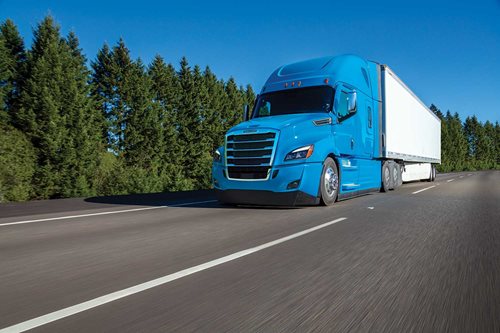
I often get asked why fuel economy and good driving habits matter to me so much, especially since I am a company driver and don't have to pay for the fuel. That is an excellent question. I am paid by the mile, so getting to my destination as quickly and safely as possible should be my only concern, right?
My reasoning goes a little deeper than that though. Let me explain.
There is More Money to be Made
My company offers a bonus for better performance, and so do most other companies too. Some companies base their bonuses simply by Miles Per Gallon (MPG) while other companies, like mine, offer bonuses for executing good driving habits that produce higher MPG. Either way, there’s money on the table and I want it. I personally like being rewarded for good habits. I can't control load weight, terrain, traffic or weather. All of those things affect fuel economy. The only thing I can control is how I drive the truck. That’s where good habits come into play. Maintaining space, being light on the pedals and using the terrain to my advantage are all things I can control every load, every day. Following good habits will get you the best fuel economy you can achieve, so if you are paid a bonus strictly on your MPG, it is a good idea to drive as efficiently as possible.
It Helps Keep Equipment in Better Condition
Fellow Team Run Smart Pro Henry Albert once presented the following scenario. He witnessed 2 professional drivers in a rough parking lot. One of them was taking their time, being careful to avoid potholes as much as possible. Their truck was in good shape and looked pretty good. The other driver was just driving haphazardly speeding through the same lot, not paying attention to the holes and ruts. Their truck seemed to be a bad shape and looked as though it had seen better days.
"What was the difference?" Henry asked. The answer: The reckless driver was a company driver. They obviously weren't concerned with the condition of the equipment. The other driver was an owner/operator and was taking great care with the equipment because that cost comes directly from their bottom line. But breakdowns cost company drivers as well.
One of the worst things to deal with is being broken down on the road. The long waits not only cost the company money, but it costs you, as the driver, money as well because of lost miles driven. Driving conservatively is easier on your equipment meaning your brakes and tires will last longer and your suspension won't wear out as quickly or break. The longer we can make these parts last, the less downtime we may experience. This, in turn, allows us to keep moving and make more money. Our company makes more money too, by increasing revenue and lowering maintenance costs.
Being Wasteful is Well...Wasteful
Whether it is fuel, money or time, wasting anything is just that, wasteful. Even though I am not paying for the fuel as a company driver, it still seems wasteful to just let the truck idle for no reason. I understand running it in extreme temperatures so we can stay comfortable, or for a mechanical issue, but to idle it just to idle it not only wastes fuel, it costs money. If I can save $3 a day in fuel and work 250 days a year (most of us work more than that), that is $750 a year. Now multiply that by the number of trucks your company may have. That $3 a day adds up pretty quick. I’m a firm believer that if my company is doing well financially, then I will do well financially.
Here are some simple things that can end up saving a lot of money:
- Keep your tires properly inflated. Proper inflation not only improves fuel economy but lessens the chance of a tire failure which can not only result in downtime and a costly road call, but a tire blowing could injure someone.
- Do a thorough Pre-Trip. Finding a problem before you get on the road can save you time and money as well. If you’re lucky, you may be at a truck stop that has service bays on site. If not, it’s still safer to have repairs performed in a parking lot than on the side of the road with traffic speeding past.
- Try to maintain momentum. Every time you slow down it requires fuel to get back up to speed. One of the easiest ways to do this is to control your following distance. In heavy traffic, whether you leave 20 feet or 200 feet, someone is going to try to grab that space. Let them take it.
- Lastly, report any mechanical issues and have them taken care of right away. Putting it off can lead to bigger issues that take longer to get fixed.
Be safe out there and take care of your equipment. It might just save you money and time.